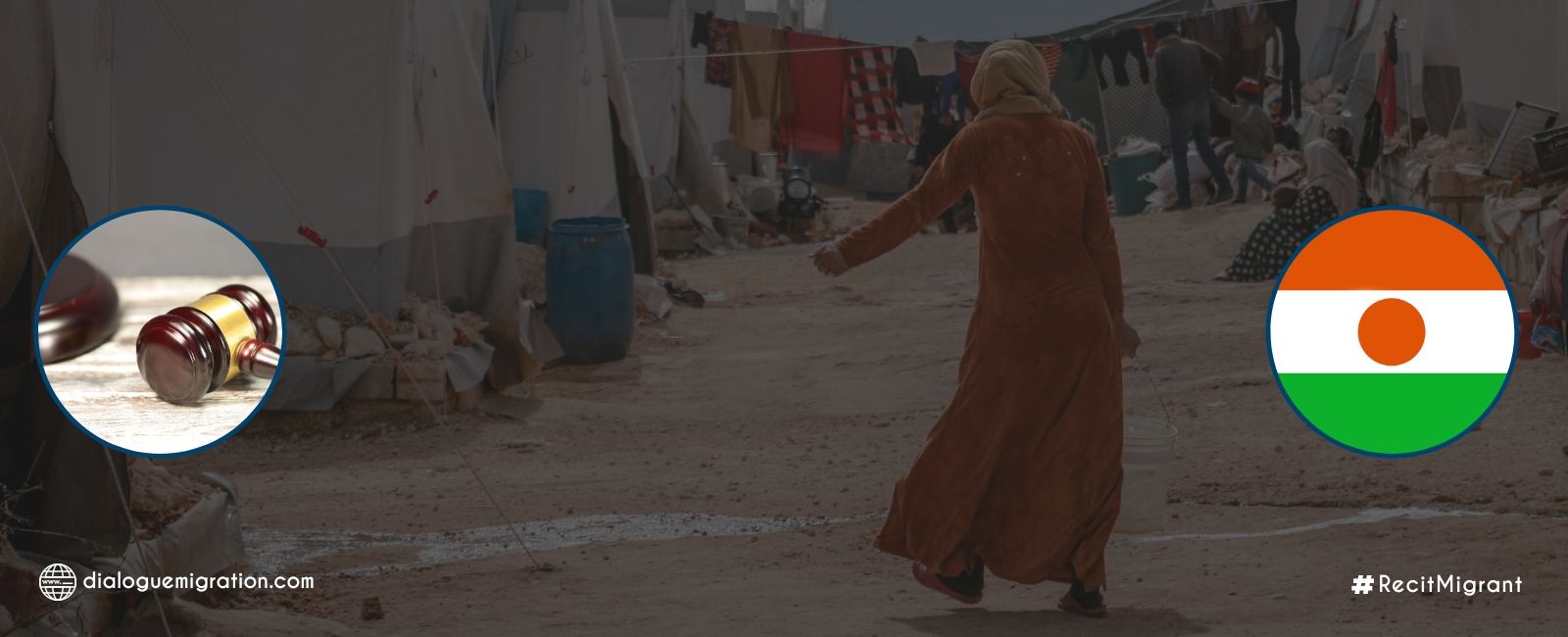

Since 26 July 2023, when the military announced the ouster of President Bazoum Mohamed, the international community has unanimously condemned the seizure of power by force in Niger. This condemnation by the international community was followed by a series of suspensions of humanitarian aid and development cooperation by some countries. This situation does not spare migrants who are waiting for humanitarian care. To assess the degree of the impact of tse sanctions on the humanitarian care of migrants, Dialogue Migration spoke with Manou Nabara, president of JIMED (Youth Childhood, Migration and Development), a non-governmental organisation that works for the well-being of migrants in Niger.
Military coup and international community’s reactions
It was early in the morning of July 26, 2023 that Nigeriens first learned through rumours of the overthrow of the President of the Republic, Bazoum Mohamed, by his own presidential guard. This information will be confirmed later through a statement from the junta read late in the evening of the same day.
Early on, the reaction of the international community was not long in coming. France, Niger’s main partner, condemned the coup d’état and announced the suspension of development aid and the suspension of its military cooperation with Niger. Even the European Union had announced the suspension of its development aid, and it is the same case with Germany suspending its cooperation.
The first two partners are key actors in the humanitarian care of migrants in Niger. The suspension of their cooperation with Niger has raised growing concern among organisations fighting for the well-being of migrants in Niger.
Sanctions with serious consequences for humanitarian assistance to migrants and internally displaced persons (IDPs)
“Humanitarian aid must remain open whatever the situation,” said Manou Nabara, JIMED president, because he added that “humanitarian aid goes directly to people who have nothing to do with the political situation in the country.” According to the president of JIMED, several interventions for the benefit of internally displaced persons (IDPs) and migrants are at a standstill. “Already one of our projects that distributes food to internally displaced people with the support of German cooperation are at a standstill, and this is one of the direct consequences of these sanctions,” says Manou Nabara.
If the situation persists, “it is likely to worsen with the rainy season that is going on,” warns the NGO JIMED. According to estimates by the United Nations Office for the Coordination of Humanitarian Affairs (OCHA) last May, about 4.3 million people are in need in Niger.
International institutions continue their humanitarian assistance to Niger
In a joint statement, the International Organisation for Migration (IOM) and the United Nations High Commissioner for Refugees (UNHCR) called for more humanitarian assistance to Niger. “The International Organisation for Migration (IOM) and the UN Refugee Agency (UNHCR) underscore the critical need for continued international assistance to vulnerable displaced populations in Niger, including migrant workers and members of their families, unaccompanied migrant children, refugees and asylum seekers, particularly in light of recent developments,” say IOM and UNHCR in their joint statement. “Niger currently hosts more than 700,000 displaced people, including refugees, asylum-seekers and internally displaced persons. Around 5,000 stranded migrants are waiting for assisted voluntary return to their countries of origin at IOM centres along migration routes, while another 2,000 are waiting for assistance outside these centres. In addition, during the week of 8-14 August, UNHCR registered more than 2,000 refugees and asylum-seekers fleeing conflict and arriving in the country through the protection monitoring mechanism,” continue the IOM community and UNHCR.
The ECOWAS mediator for Niger, General Abdusalami Abubakar, said in an interview on BBC that the military coup plotters in Niger have announced that they are open to negotiations and ask ECOWAS to lift the sanction by opening land and air borders. For many analysts, this new situation could bring about a change in the situation faced by migrants and refugees in Niger.


